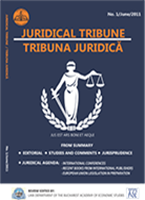The legal framework for PPP in China – current issues, challenges and future perspectives – with regard to the French experience
The legal framework for PPP in China – current issues, challenges and future perspectives – with regard to the French experience
Author(s): Jingyi Tian, Banggui JinSubject(s): International Law, Law on Economics, Sociology of Law, Comparative Law, Administrative Law
Published by: Societatea de Stiinte Juridice si Administrative
Keywords: PPP (public-private partnership); legal framework; legal challenges; Chinese Law; French Law;
Summary/Abstract: In recent years, the relationship between the private and public sectors has changed in response to the challenges posed by economic globalisation, with the PPP model guiding the two subjects from a relationship of subordination and employment to one of equality and partnership. Such a partnership model is complex but revolutionary in that the government no longer acts as a regulator alone, but also becomes a participant in the market. It is because of the involvement of public power that a well-developed PPP legal framework is particularly important to prevent the abuse of public power and the emergence of inequalities in the market. China has also introduced the PPP model to solve a range of problems arising from accelerated urbanization, to meet the massive demand for public services and infrastructure development, and to deal with the government's financial difficulties. This article analyses the main problems and challenges that China currenty faces in the regulation of PPP, before looking at ways of improving the legal framework for PPP in China, following the example of French law in this area.
Journal: Tribuna Juridică
- Issue Year: 13/2023
- Issue No: 4
- Page Range: 602-623
- Page Count: 22
- Language: English

